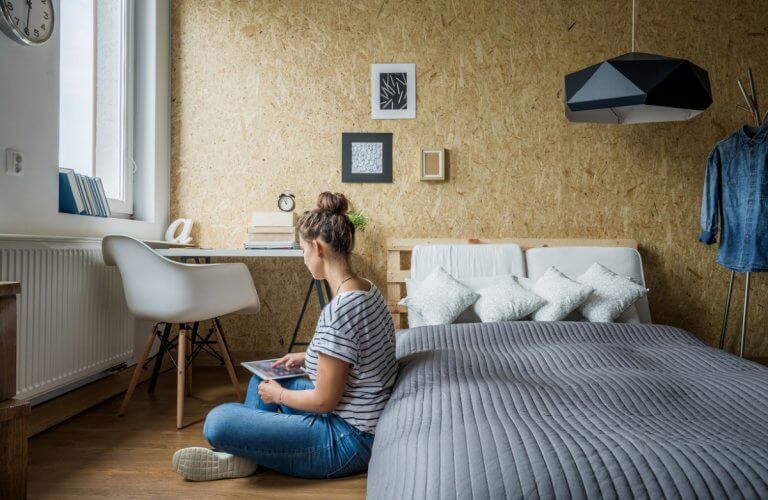
As university students, physical space (or the lack of it) can be frustrating.
Cramped student accommodation could result in you not being able to store your belongings comfortably – this includes a lack of closet space for your clothes, kitchen items, toiletries, textbooks and miscellaneous belongings, which results in things being stored haphazardly in just about every nook and cranny of your home.
If the mess and lack of organisation are getting to you, it’s time to get proactive and transform your student accommodation. The best part? You don’t need a lot of money to spruce things up at home – just some time and effort.
We’ve scoured the web for decluttering and organising tips by Japanese KonMari consultant Marie Kondo. Apply them and revamp your space into one you’ll be much happier living in!
It took me 10 days to #KonMari my bedroom…
Today was the first time that I could walk into my room and feel at ease. It was pretty awesome.
— Cyndi (@psyduckies) January 8, 2019
Let’s get started.
Declutter by category
Kondo suggests tackling belongings such as clothes and books first, before moving onto other items such as paper, kitchen items, and so forth.
If you’re decluttering your books, this means you’ll have to tackle all of them at once and not room by room.
Identify items that are necessary and make you happy
The KonMari method can help you decide what to keep, give or to be thrown out. Essentially, items you no longer need or that no longer make you happy should be touched, thanked and sent on their way.
Spend some time going over your belongings – this includes your clothes, jewellery, electronic items and books.
Items you no longer wish to keep can be donated, recycled or discarded. Kondo notes that you can have a ‘pending box’ for items you still want to go through while sorting out your belongings before deciding whether to keep them or send them on their way.
Do note that while some items such as textbooks may not necessarily spark joy, they may be essential to you as a student, and hence should be kept if you still need them for your classes.
Once you’re left with all the things you wish to keep, organising them becomes an easier task.
Organise your clothes
https://www.youtube.com/watch?v=A4j9Pkznay4
Kondo is a wizard at folding clothes, and her YouTube videos are a testament to that.
The author notes that clothes should be folded in a way that they can stand upright on its own. Hence, items such as t-shirts, sweaters, pants, and even underwear are folded into a rectangular shape before being stored in your cupboard or drawer using the method shown in the video above.
You will be amazed at how much more space you will have by following this method.
Tidying up your study space
Once you’ve identified items you wish to keep in your study space, start organising them as you wish.
Kondo’s tip includes lining up your items, such as books, as opposed to stacking them up. This enables you to see all your belongings at a glance.
Storing food and food containers
Kondo’s advice includes using the same brand of food containers and keeping the box and lids separate. By storing the lids upright and stacking the boxes together, you can maximise your storage space.
You can also divide space in your kitchen drawers with boxes so you can neatly organise your items. If there’s space within your box, you can use a box-within-box method – literally inserting a smaller box within a box to help tidy your space.
Kondo also notes that many people feel bad about throwing out food, but if it has expired, it has to be discarded rather than kept in your kitchen.
Keeping or discarding gifts and packages
We sometimes have thoughtful friends and family who give us gifts for our birthdays or souvenirs when they’ve come back from a trip. Despite the kind gesture, what should you do if have been gifted something you dislike?
Kondo notes on her website that: “They are all gifts that someone used precious time to pick out and purchase for you. They are expressions of love and kindness, but they don’t suit your taste. You don’t want to donate them just yet, but you also shouldn’t shove these gifts into a closet.”
Instead, she suggests opening them immediately, removing the packaging and start using them now. “Try out every gift at least one time – even those that don’t immediately spark joy,” she said. After using the item and deciding that it doesn’t suit you, thank it and bid it farewell.
As for packages, they should be opened as soon as they arrive.
“If the item sparks joy and you intend to keep it, remove the tag immediately. By doing this, the item officially becomes your belonging,” she said.
Liked this? Then you’ll love…
What students should know about living off campus
It’s a bargain! 10 UK cities for the thrifty international student







